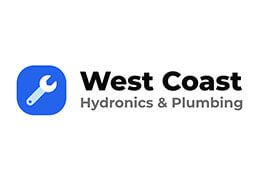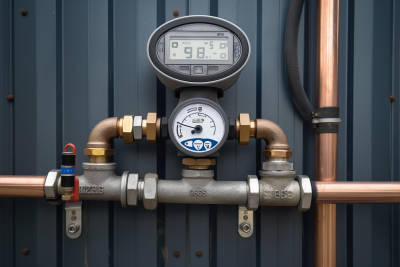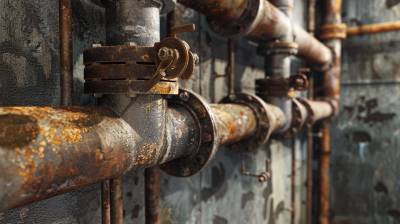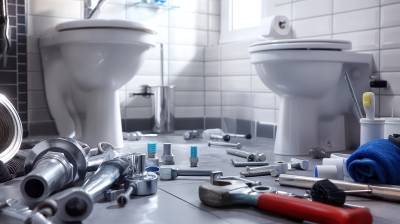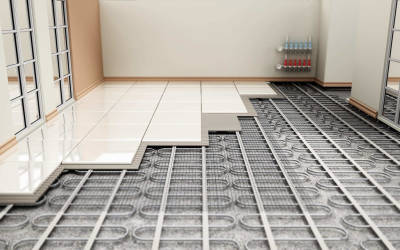Are you looking for an efficient, effective, and comfortable way to heat your home or business? If so, you may want to consider hydronics heating—a heating system that heats an environment through the use of water or other liquids. Hydronics heating is a popular choice among homeowners and businesses alike due to its energy efficiency, cost-effectiveness, and optimal comfort level. It provides a consistent heat that warms every corner of every room, improving winter comfort significantly. Let's dive deeper into this topic and understand how a hydronics heating system works, its different types, and why it could be the best heating option for your needs.
Understanding Hydronics Heating
The term "hydronics" comes from the Greek word "hydor," meaning water. Hence, hydronics heating involves the use of water or another liquid medium to transfer heat throughout a structure. The fluid gets heated in a boiler and then circulates through a network of pipes to different heating outlets, such as radiators or underfloor heating systems. The hot fluid then radiates heat into the room, warming it up. The cooled fluid moves back to the boiler for heating, and the cycle goes on.
The Different Types of Hydronics Heating
There are three main types of hydronics heating systems:
- Hydronic Baseboard Systems
- Hydronic Radiant Floor Systems
- Hydronic Radiator Systems
Each type delivers heat in a slightly different way but with the same primary objective -- to create a comfortable and evenly heated space.
How a Hydronics Heating System Works
A hydronics system operates relatively simply. The boiler heats the water or other fluid, and a pump circulates it through the system's pipes. As the warm liquid flows through these pipes, it disperses heat throughout the structure either directly via radiators, baseboards or indirectly via floors warmed by the embedded pipes beneath them. The fluid flows back to the boiler to get reheated, and the cycle continues.
The Role of the Boiler
The boiler is the heart of any hydronics heating system. It's where the water or heating fluid is warmed before it circulates through the pipes. Boilers can heat the fluid using various energy sources, including natural gas, propane, oil, or electricity.
Hydronics Heating and Energy Efficiency
One of the significant advantages of hydronics heating is its energy efficiency. This system uses water—a better heat conductor than air, to distribute heat. Therefore, it requires less energy to heat an environment. Also, hydronic systems eliminate the need for forced-air systems, which can cause heat loss through ducts.
Economic Benefits of Hydronics Heating
While the initial installation costs of hydronics heating may be higher than traditional heating systems, the long-term economic benefits are noteworthy. Since hydronic systems operate more efficiently, they often lead to lower energy bills. Additionally, because they have fewer moving parts, they tend to require less maintenance, saving you money over time.
Choosing the Right Hydronics Heating System
The right hydronics heating system for you will depend on various factors, such as your heating needs, the size of your property, and your budget. It's always wise to consult with an HVAC specialist who can guide you on the best option for your specific situation.
Personalize Your Heating with Hydronics
One of the unique benefits of hydronics heating is it allows for zoning or the ability to heat different parts of a property to different temperatures. This level of control not only makes for a more comfortable environment but can also lead to additional energy savings.
So, whether you're building a new home or looking to replace an old heating system, consider hydronics heating. Its efficiency, cost-effectiveness, and heating comfort make it a worthwhile investment for any homeowner or business owner. Contact a professional in your area to learn more about how you can benefit from a hydronics heating system.
Frequently Asked Questions about Hydronics Heating
What types of hydronics heating systems are available?
There are multiple types of hydronics heating systems available including baseboard heaters, radiant floor heaters, and radiator-based systems. These can use a variety of heat sources such as boilers, solar water heaters or heat pumps.
Is the installation process of hydronics heating complicated?
The installation process depends on several factors including the type of hydronics heating system and the existing infrastructure. It could be complex if it involves tearing up floors or other major structural changes. However, professionals who specialize in hydronics heating can carry out the process efficiently and neatly.
Does hydronics heating provide efficient heating?
Yes, hydronics heating is highly effective at providing comfortable, even heat throughout a home or building. It has been known to be more efficient than many traditional methods of heating due to its ability to maintain a constant temperature through circulated water.
Can hydronics heating be used for cooling too?
It might surprise you, but yes, there are systems available that can use the same infrastructure of hydronics heating for cooling as well. The same way hot water can distribute heat, cool water can disperse chilled air around your home. However, not every hydronics heating system has a cooling capability. Careful planning and investment are needed for systems that cater to both.
Is hydronics heating cost-effective?
While the initial installation of a hydronics heating system can be costlier than that of a traditional heat system, the cost-effectiveness should be measured over the long term. Hydronics heating can be more energy-efficient which results in lowered energy costs over time. The actual cost-effectiveness can depend on factors like size of the premises, type of hydronics heating system used, and geographical location.
Can I have hydronics heating installed in an already-built house?
Absolutely! Hydronics heating systems can be retrofitted into existing homes. However, some designs are easier to install during the construction process. These include panel radiators and underfloor heating. Therefore, if you are at the construction stage of your new home, it's beneficial to think about including hydronics heating in your plan.
Can hydronics heating systems be combined with other heating systems?
Yes, many people combine a hydronics heating system with other heating methods such as forced-air furnaces. This is known as a hybrid heating system and can offer the benefits of both systems.
How long does a hydronics heating system last?
A well-installed and well-maintained hydronics heating system can last upwards of 25 years. The lifespan of a hydronics heating system can be influenced by a variety of factors including the quality of the installation, the type of the system, and the consistency of maintenance.
What kind of maintenance does a hydronics heating system require?
Maintaining a hydronics heating system generally involves keeping the boiler in good working order, checking for leaks, checking for blockages in the pipes, and ensuring that all components are functioning correctly. Professional maintenance annually or bi-annually is also recommended to keep your system in top shape.
Pros and Cons of Hydronic Heating
Pros of Hydronic Heating
Efficiency and Energy Savings
- Hydronic heating systems are highly efficient because they use water rather than air to transport heat. Water is a much better conductor of heat than air, so less energy is wasted.
- Compared to traditional air-based heating systems, hydronic heaters consume far less energy. This can lead to significant energy cost savings for users in the long run.
Comfort and Quality of Heating
- Hydronic heating produces a consistent, even heat that radiates upwards from the floor, ceiling, or panel providing comfort at lower room air temperatures.
- This type of heating eliminates cold spots and drafts common with forced-air heating systems, resulting in a more comfortable indoor environment.
Quiet Operation
- Unlike traditional heating systems that can be noisy at times, hydronic heaters run silently because they are largely self-contained and do not rely on blowing air to distribute heat.
- There are no loud fans, motors, or air blowing through ducts, making hydronic heating a peaceful and quiet option for heating homes or workplaces.
Health Benefits
- Hydronic heating does not use air to distribute heat, so it does not distribute allergens or dust throughout the room. This leads to better quality indoor air and can be beneficial for individuals with allergies or respiratory conditions.
- This form of heating also reduces the dry air effect that can often occur with forced-air heating systems, maintaining a more comfortable humidity level in the space.
Cons of Hydronic Heating
Installation Cost and Complexity
- Hydronic heating systems require a considerable amount of work to install, particularly those that are integrated into flooring or walls. This can also result in a higher initial investment compared to other heating systems.
- Further, installing hydronic heating in an existing structure is much more difficult and costly than installing it during new construction. This may limit the suitability of these systems for certain types of buildings or renovations.
Maintenance and Repair Complexity
- Because hydronic heating systems use water, mineral deposits can build up over time, impairing efficiency and potentially damaging components. Regular maintenance is required to address this issue.
- If issues do arise, they can be challenging to diagnose and fix without professional assistance. Technical expertise is often needed for both routine maintenance and more complex repair work.
Long Heat Recovery Time
- Hydronic heating systems can take a while to heat up, particularly the underfloor variations. Once the system is turned off, it can also take a long time for the temperature to decrease. This can be an issue if quick heat adjustments are needed.
Summary
Hydronics heating is definitely one worth considering for sustainable and efficient heating solutions. With it, you get a system that is not only eco-friendly but also incredibly efficient in delivering comfort. Though it may cost more initially, over time, you'll notice cost savings on your energy bills. So if you are looking for a reliable heating system that provides comfort and helps you save in the long run, hydronics heating is a great choice.
An important point to remember about hydronics heating systems is their flexibility. You can easily adjust the heat output to suit your specific needs and preferences. This adaptability is one of the reasons why many folks opt for hydronics heating systems. It can accommodate your specific needs, whether it's for a single room or an entire building.
Despite their efficiency and adaptability, hydronics heating systems aren't maintenance-free. Routine checks and repairs are crucial for their effective operation. However, this is the case with virtually any heating system. Don't let this put you off - once you've tasted the convenience and comfort that these systems provide, you'll see it's more than worth it.
About West Coast Hydronics & Plumbing
Meet West Coast Hydronics & Plumbing, your friendly neighborhood plumbing and hydronics experts hailing from sunny Sacramento, CA. In operation for more than two illustrious decades, we are family-owned and operate with commitment to providing efficient services with a smile. Our talented team of seasoned professionals specializes in everything from general plumbing installations, repairs, to modern hydronic heating solutions. What makes us tick is our passion for what we do and our commitment to ensuring our valued customers have fluid, trouble-free lives. For a free consultation or more information about our stellar services, simply click here. Let us bring the best of the West Coast to your plumbing needs.
